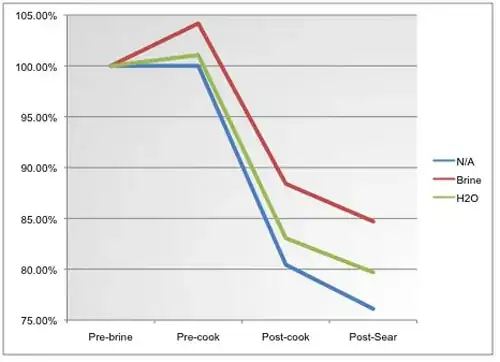According to Handbook of Food Science, Technology, and Engineering, Volume 3, edited by Yiu H. Hui,
- the freezing of any meats, (particularly red meats), causes cell
walls to rupture
- the rate of rupture is inversely proportionate to the rate
freezing
Since household-grade freezers are of the slower sort, owing to an effort toward energy efficiency, when we at home freeze meats we are doing about as much damage as possible to the structural integrity of the meat at its most fundamental level, to wit, its cell walls.
The reason this is relevant to the question [of brining before or after freezing] is as follows. To brine meat is to infuse it with water or, as the wiki on Brining states here,
...makes cooked meat moister by hydrating the cells of its muscle
tissue before cooking, via the process of osmosis, ...
Since water, unique among all molecules, is the only substance which actually expands when frozen rather than contracts, the absorption of additional water into the individual cells of the meat is now guaranteed to facilitate further rupturing of the cell walls, that is, if brining is performed prior to freezing.
Certainly therefore it is counterproductive to attempt to brine meat before freezing it, at least in the home setting. The greater quantity of ruptured cell walls, caused by the introduction into the cells of more water prior to freezing, ensures that the meat once thawed and undergoing preparation will have that many fewer cell walls in tact, that is, cell walls by which to keep the moisture in the cell. The result will be a product less moist than one would have obtained had brining not been performed.

Here we find a perfectly thorough blog entry on the brining of turkey where, it must be said, we find that the author does not present a brine-to-freeze option. The author does however confirm that "11% sodium" on the label represents a turkey brined by the manufacturer, (which we'll hope to find refrigerated by our grocer, not frozen). The above graphic, which applies only tangentially to the question at hand, was obtained from that blog entry. Its relevance however speaks for itself.
